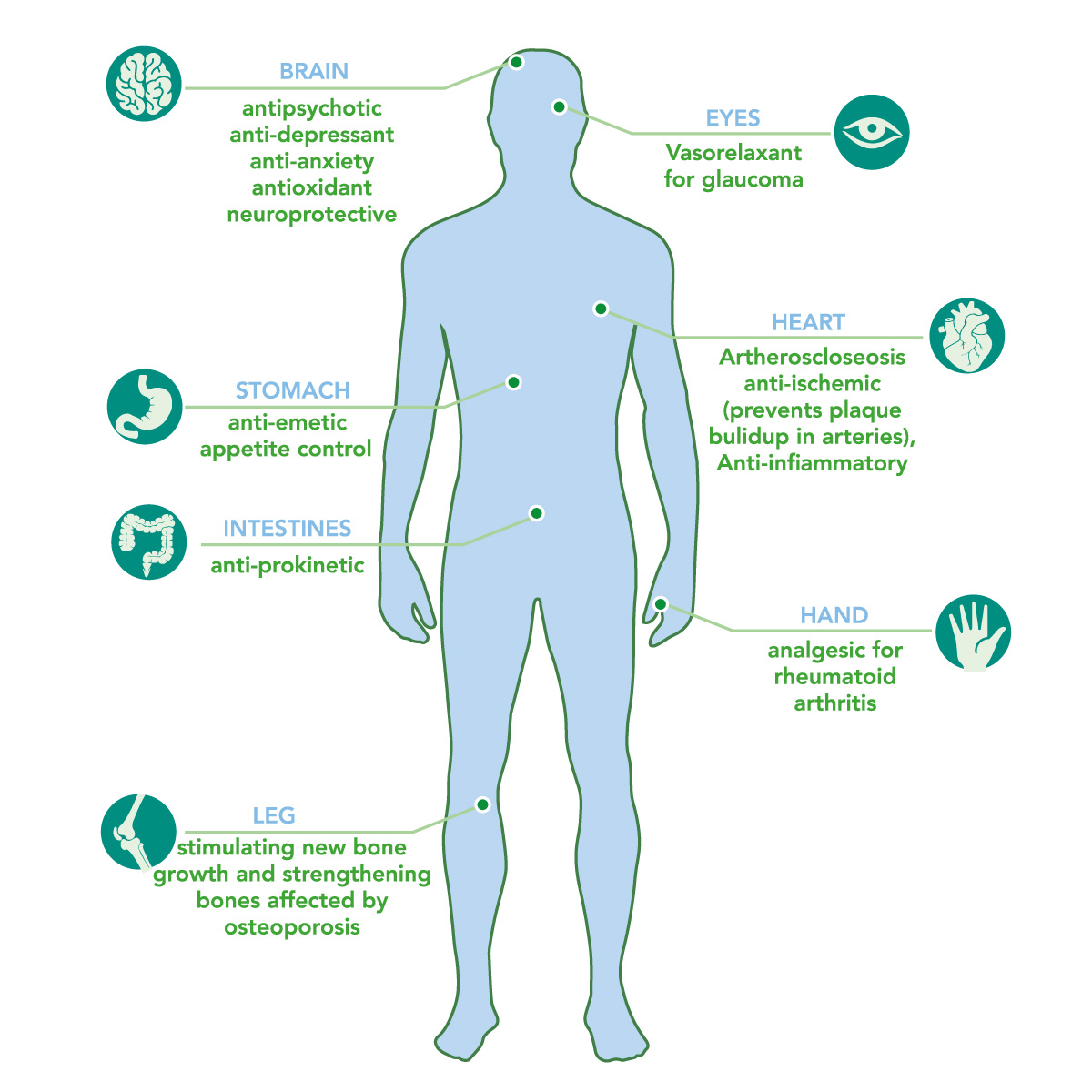What is cannabidiol?
Cannabidiol (CBD) is the second most important cannabinoid found in Cannabis Sativa and it is found primarily in the flowers and leaves of the hemp plant.
CBD has no psychotropic effects on human organism, differently from THC. According to a report from the World Health Organization, “In humans, CBD exhibits no effects indicative of any abuse or dependence potential”. Cannabidiol is a legal substance and could be used also during sports activity, since it is not declared as doping.




